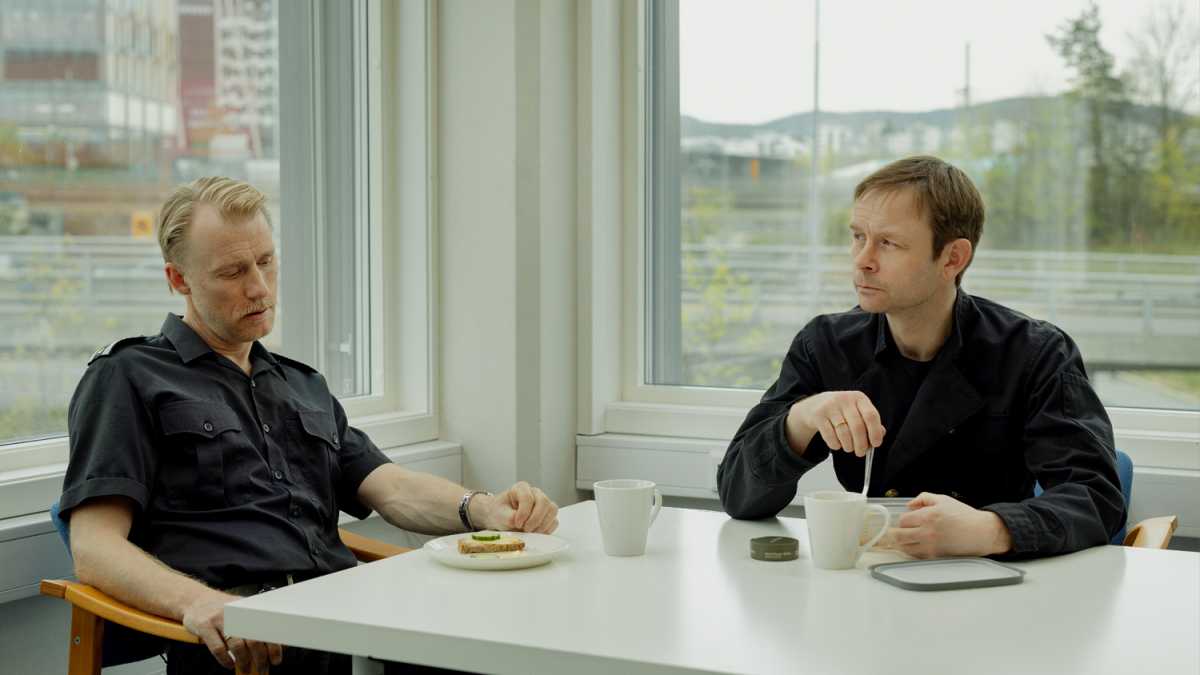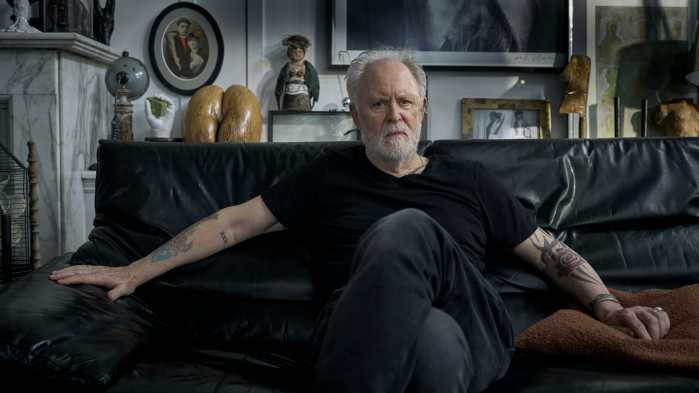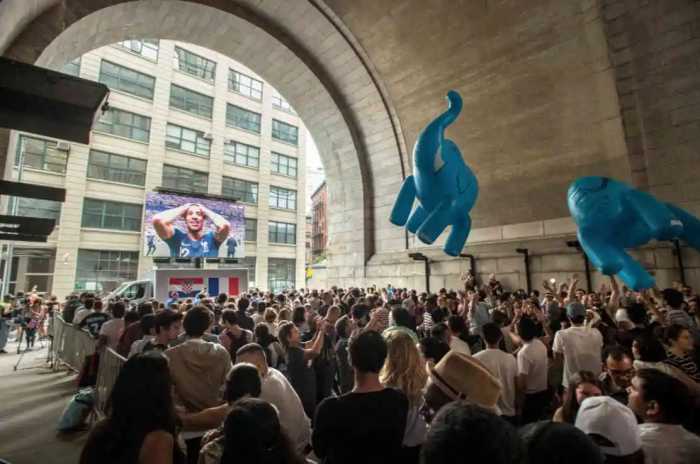Gooners beware! The title of “Sex” is a provocation against the demand for cheap thrills. Rather than titillation, it offers two hours of talk. The second installment of Norwegian director Dag Johan Haugerud’s “Love, Sex, Dreams” trilogy opens in New York, where it takes a quiet look at two middle-aged men’s experiences. That shakes up their understanding of themselves as cisgender and heterosexual.
As well as being a film about midlife crisis, “Sex” also gazes upon the dynamics of heterosexual marriage. It opens on a monologue by a window washer nicknamed CEO (Thorbjorn Harr), who recounts a dream in which David Bowie looked on him with longing. He imagines himself being seen as though he were a woman, although details are cloudy. As he relates this story in his office, one suspects he’s talking to a therapist, but then the camera pans over to his co-worker, nicknamed Chimney Sweep, (Jan Gunnar Rosse), who has an even more intense experience of his own to relate. He was cruised by a man whose window he was cleaning. Invited inside, the two had sex. Both CEO and Chimney Sweep are married, but the latter doesn’t consider his actions cheating because he didn’t start a relationship. He sees casual sex with men as entirely separate from his heterosexual life. When he tells his wife (Sri Forberg), she thinks differently. Indeed, her certainty is the clearest emotion held by any character: She’s angry at her husband for cheating on her, and she never fully lets go of that. Neither of the four main characters is given a name.
Both men experience something new when they become someone else’s objects of desire. Gendered expectations mean that this hits them much differently than their wives. When Chimney Sweep speaks about his experience of gay sex, old expectations about masculinity and bottoming rise up. For the film, it’s crucial that he was willing to be screwed by a man and found it exciting and positive. Because a blend of fear and desire around anal sex plays such a large role in heterosexual men’s anxieties about queerness, it would mean something entirely different if he had just received a hand job. Both his wife and CEO ask if the sex hurt.
On CEO’s part, David Bowie functions both as a symbol of bisexuality and gender fluidity. He was also a performer who never settled upon a single identity. A Christian, CEO considers that he may really have been imagining himself looked at by God. He also confuses Bowie with one of ABBA’s female singers. But he keeps having the same dream and feeling good about being seen as a woman.
Some of the weaker aspects of “Sex” stem from Haugerud’s direction. In most scenes, his characters are posed against glass, with the city visible just behind them. Yet they’re enclosed in private spaces. As in “Love,” Haugerud inserts images of Oslo streets as breaks in the endless conversation, but they’re disconnected from the heart of “Sex.” The widescreen framing is attractive, but it threatens to turn into overly tasteful IKEA-porn. Despite the importance of the film’s images, it could easily be staged as theater and would not lose much.
“Sex” threatens to turn into an overly genteel examination of its themes, but two scenes do something far different. When CEO takes his son for a visit with a female doctor, she suggests that menstrual cramps can be perceived as a symbol of woman’s stature as goddesses: Pain is necessary for divinity. He dismisses her thoughts by saying his wife hates the pain and since she’s a Christian, doesn’t believe in herself as a goddess. The doctor reminisces about two of her patients, a scene dramatized in a black-and-white flashback. She looks back upon a gay couple in which one man unwittingly disrupted his partner’s attraction to him by getting a back tattoo. The theme of constant change, even within long-term relationships, is impossible to miss. The implications of the final scene, in which CEO and other men in his Christian dance troupe don androgynous clothes for a performance, are more ambiguous.
“Sex” remains open-ended and steers clear of firm conclusions. It’s a typical arthouse sensibility, but it also reflects a cultural shift away from binary concepts of gender and sexuality. Both men may be basically cishet while also queer in some sense. They may also explore their attractions much further. The film provides a space for them to do so with no more than the barest minimum of homophobia. (It reflects some huge differences between Norwegian and American culture: Christianity isn’t coded as largely conservative, and no one has to worry seriously about money.) This degree of comfort might be a fantasy, even in Scandinavia. Haugerud uses it to glance at the difficulty of defining sexuality and gender in a single, unshifting word while supplying his characters with a safety net for their explorations.
“Sex” | Directed by Dag Johan Haugerud | In Norwegian with English subtitles | Strand Releasing | Opens June 13th at Film Forum



































